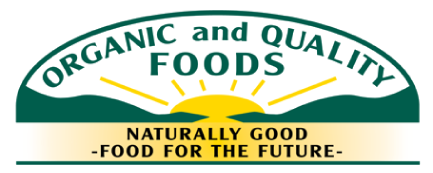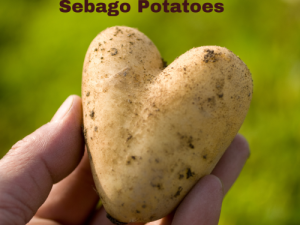The Power of Eating Healthy: Top 10 Benefits of Organic Eating for you and the Environment
Organic eating has become increasingly popular in recent years, and for good reason. Not only is it a healthier option for our bodies, but it also has a positive impact on the environment. By choosing organic foods, we not only nourish our bodies with nutrient-rich and chemical-free food, but we also support sustainable farming practices that promote biodiversity and protect the planet. In this blog post, we will explore the top 10 benefits of eating organic and how it can benefit both you and the environment. Get ready to discover the power of eating healthy and making a positive impact on the world around us.
1) Unveiling Organic: Understanding What Organic Eating Truly Means
Organic eating has gained popularity in recent years, but what exactly does it mean? Simply put, organic eating refers to consuming food that is grown or produced without the use of synthetic fertilizers, pesticides, antibiotics, or genetically modified organisms (GMOs). Organic farming practices focus on natural and sustainable methods, which have a direct impact on the quality and nutritional value of the food we consume.
When it comes to organic fruits and vegetables, for example, farmers use natural methods such as composting and crop rotation to enrich the soil and control pests. This results in produce that is not only free from harmful chemicals, but also richer in essential vitamins, minerals, and antioxidants. The same goes for organic meats and dairy products, which come from animals that are raised without antibiotics or hormones, leading to healthier and more nutrient-dense options.
Organic eating is not only beneficial for our bodies, but also for the environment. By supporting organic farming practices, we help protect soil health, conserve water, and promote biodiversity. Organic farming methods prioritize the use of renewable resources and strive to minimize waste and pollution. By choosing organic, we contribute to a more sustainable and eco-friendly food system.
2) For Your Wellbeing: The Top 10 Health Benefits of Eating Organic
Eating organic has a multitude of health benefits that can significantly improve your well-being. Let’s dive into the top 10 reasons why incorporating organic foods into your diet can make a positive impact on your health.
1. Higher Nutritional Value: Organic vegetables, for example, are grown in nutrient-rich soil without the use of synthetic fertilizers. As a result, they often contain higher levels of vitamins, minerals, and antioxidants compared to conventionally grown produce.
2. Reduced Exposure to Pesticides: Organic farming prohibits the use of synthetic pesticides. By choosing organic, you can minimize your exposure to harmful chemicals commonly found in conventionally grown fruits and vegetables.
3. No GMOs: Organic foods are non-GMO, meaning they have not been genetically modified. This ensures that you are consuming food in its natural and unaltered state.
4. Better for Your Immune System: The absence of antibiotics and hormones in organic meats and dairy products means you are consuming cleaner, healthier sources of protein. This can help strengthen your immune system and support overall wellness.
5. Enhanced Digestion: Organic foods are often free from additives and preservatives that can wreak havoc on your digestive system. By opting for organic options, you can enjoy food in its purest form and potentially alleviate digestive issues.
6. Reduced Risk of Disease: Studies suggest that consuming organic foods may help lower the risk of certain diseases, such as cancer, heart disease, and neurological disorders. This is likely due to the absence of harmful chemicals and higher nutrient content in organic produce.
7. Improved Mental Wellbeing: Your gut health has a significant impact on your mental health. By consuming organic foods, you are nourishing your gut microbiome with beneficial bacteria, which can contribute to improved mood and overall mental well-being.
8. Support for Sustainable Agriculture: Choosing organic means supporting sustainable farming practices that prioritize soil health, water conservation, and biodiversity. By making this choice, you are contributing to a more environmentally friendly and sustainable food system.
9. Fresher, Tastier Food: Organic food is often grown closer to home and sold locally, meaning it is fresher when it reaches your plate. This can result in enhanced flavour and a more enjoyable dining experience.
10. Setting an Example: By embracing organic eating, you are leading by example and inspiring others to prioritize their health and make conscious choices for the environment. Your commitment to organic food can create a ripple effect and positively impact those around you.
3) Sowing the Seeds for Sustainability: The Environmental Impact of Organic Farming
When it comes to the environmental impact, organic farming practices truly shine. By choosing organic, you are sowing the seeds for sustainability and contributing to a healthier planet. Let’s explore the ways in which organic farming positively impacts the environment.
First and foremost, organic farming promotes soil health. Organic farmers prioritize the use of natural methods like composting and crop rotation, which enrich the soil with nutrients and improve its structure. This not only enhances the quality of the food we eat but also helps prevent soil erosion and degradation.
Additionally, organic farming reduces water pollution. Synthetic fertilizers and pesticides used in conventional agriculture often leach into water sources, contaminating them with harmful chemicals. Organic farming, on the other hand, relies on natural and sustainable practices that minimize water pollution, preserving the health of our rivers, lakes, and oceans.
Furthermore, organic farming supports biodiversity. By avoiding the use of harmful chemicals, organic farms create a habitat that attracts a diverse range of insects, birds, and other wildlife. This is crucial for maintaining a balanced ecosystem and ensuring the survival of various species.
Lastly, organic farming contributes to reducing greenhouse gas emissions. Conventional farming methods often rely on fossil fuels for machinery and synthetic inputs. In contrast, organic farming focuses on renewable resources and emphasizes energy conservation, reducing the carbon footprint of agriculture.
4) Comparing the Costs: Financial Considerations for Organic Consumption
When it comes to organic eating, many people wonder if it’s worth the higher price tag. While it’s true that organic food can sometimes be more expensive than conventionally grown options, it’s essential to consider the long-term financial implications of your food choices.
Firstly, investing in your health now can save you money in the future. By prioritizing organic food, you are nourishing your body with nutrient-dense, chemical-free options. This can lead to improved overall health and a reduced risk of chronic diseases, ultimately saving you money on healthcare costs down the line.
Secondly, organic food often offers better quality and flavour, meaning you may actually get more value for your money. Locally sourced organic produce, for example, is often fresher and tastier than conventionally grown alternatives. This can enhance your culinary experience and make meals more enjoyable, ultimately leading to less waste and a more satisfying dining experience.
Lastly, by supporting organic farming practices, you are investing in a more sustainable future. Organic agriculture promotes soil health, water conservation, and biodiversity. These factors contribute to a healthier planet for future generations. By considering the long-term environmental and societal benefits of organic farming, you are making a wise investment in a better future.
5) Make The Switch: Easy Ways to Start Eating Organic Today
Transitioning to an organic diet may seem like a daunting task, but it doesn’t have to be. There are many easy and practical ways to start eating organic today. Here are a few simple tips to help you make the switch.
First, start small. You don’t have to overhaul your entire diet overnight. Begin by choosing one or two organic items that you consume regularly. It could be organic fruits and vegetables or even organic dairy products. By gradually incorporating organic options into your meals, you can make the transition more manageable.
Next, explore local farmers’ markets and organic food stores in your area. These places often offer a wide variety of organic produce and products. Not only will you be supporting local farmers, but you’ll also have access to fresh and locally-grown organic food. If you prefer your organic food home delivered, check out: www.organicfoods.com.au
Another way to start eating organic is to grow your own food. Whether you have a spacious backyard or just a small balcony, you can plant your own organic herbs or vegetables. Not only is it a rewarding and sustainable hobby, but it also ensures that you have control over the growing process and know exactly what goes into your food.
Lastly, educate yourself about organic food and its benefits. Read books, articles, and watch documentaries that provide information about organic farming and its impact on your health and the environment. Understanding the benefits of organic eating will motivate you to continue making conscious choices.




